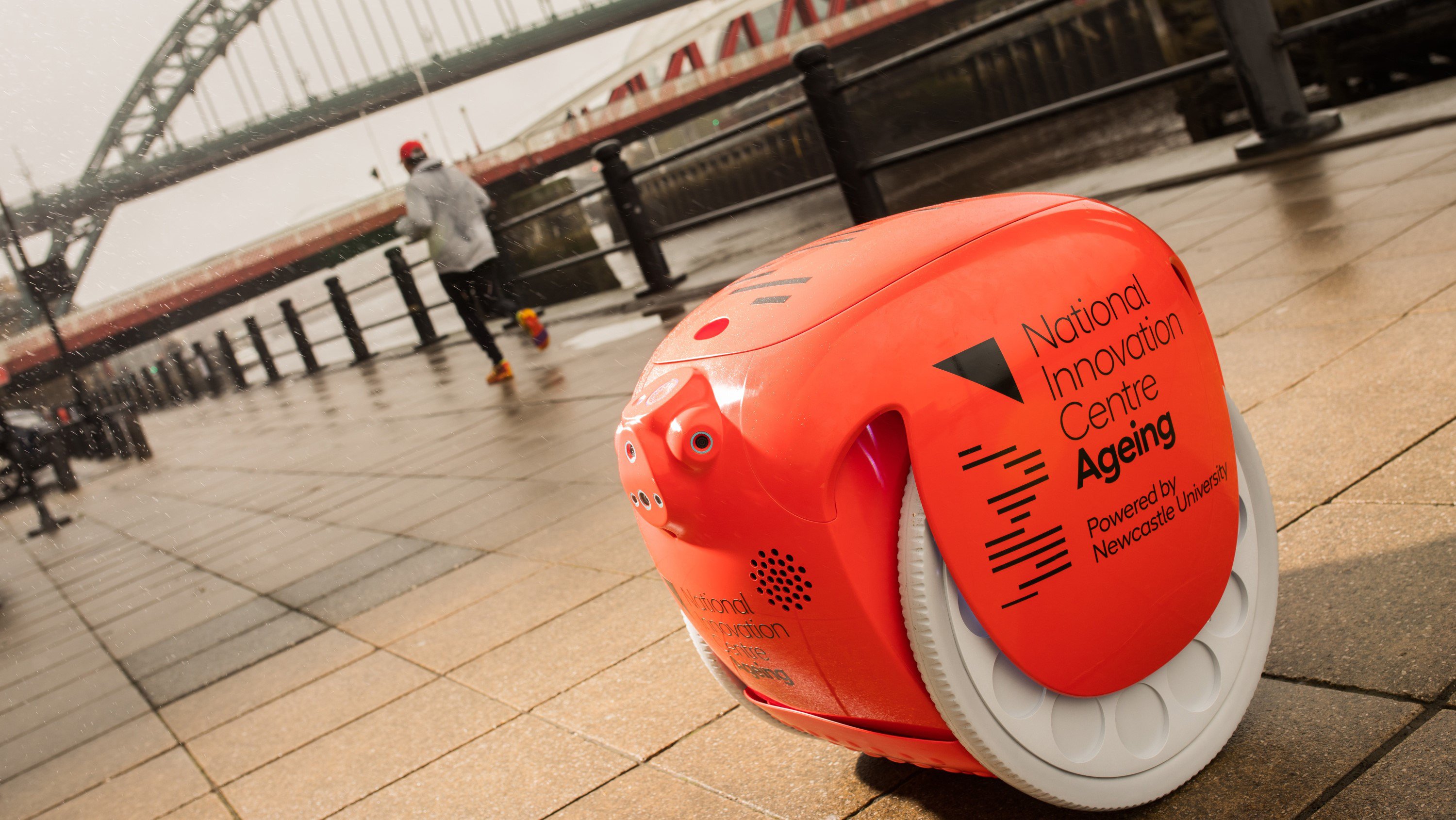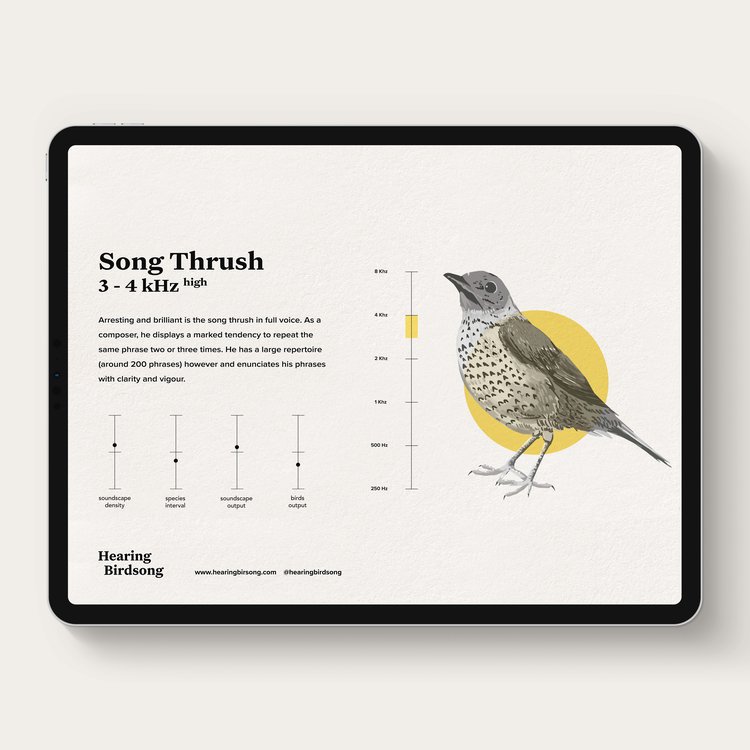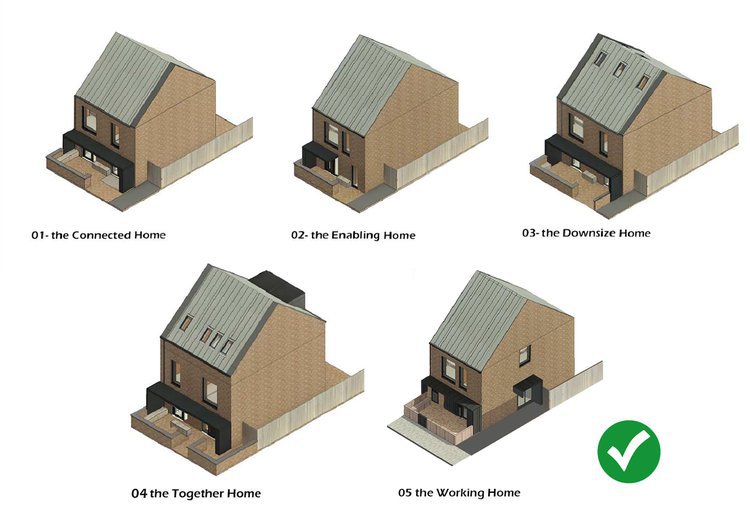Key details
Date
- 26 January 2022
Author
- RCA
Read time
- 5 minutes
The Design Age Institute announces six Pathfinder Projects to develop commercially viable products and services that will enable individuals and communities to maintain an active and joyful life at every age.
Key details
Date
- 26 January 2022
Author
- RCA
Read time
- 5 minutes
The Design Age Institute will work to support projects including cargo-carrying robots, an app to engage people with their hearing health through birdsong, flexible housing, an age-inclusive bank, data-driven diabetes management and a two-wheeled personal electronic vehicle.
Based at the Royal College of Art, The Design Age Institute was set up to provide design support for Pathfinder Projects; accelerating an innovative idea for healthy ageing from a prototype towards market. The objectives of these projects are to help people age healthier and happier in their home, workplace and neighbourhood by addressing issues of mobility, health, social connection, working life, finance, independence at home and ageism. Across its Pathfinder programme, the Institute provides and facilitates seed funding, design research, opportunity scoping and mentoring, as well as connecting projects with design experts. Applications for the second round of Pathfinder Projects are now open.
“From health and mobility to housing and financial security, each of these innovative Pathfinder Projects focuses on a different fundamental part of day-to-day life. They all have the important common goal of developing desirable and commercially viable products and services for an ageing society. We're pleased to be working with a number of exceptional organisations and we look forward to launching more projects soon.”
Director, Design Age Institute
Gita cargo-carrying following robots:

Gita® is a first-of-its-kind cargo-carrying following robot. The gita robot pairs with a person and follows them while they walk. It can carry up to 18kg of cargo freeing the hands of the user. The gita robots are being tested by the UK National Innovation Centre for Ageing (NICA) and its sister organisation VOICE®, where they will study human experiences and interactions with the robots and explore user acceptance. NICA works in partnership with Design Age Institute.
The aim of the gita robot is to supply older people with an intuitive and responsive companion, enabling them to have the confidence to engage with the outside world and their communities in a meaningful way. Designer-in-Residence Roseanne Wakely has been brought into the project from Design Age Institute to explore and expand the capabilities of the gita. She is using the gita as a platform to consider how older people can accommodate robots in their everyday lives in the city and support healthy ageing. The gita provides a new lens that grants them the opportunity to re-imagine and dream of their ideal city of the future. You can watch videos that showcase the benefits of the gita, including Health, Conversation and Companionship, here.
Gita® is made by robotics company Piaggio Fast Forward (PFF) and is backed by Piaggio Group, manufacturer of the iconic Vespa scooters.
Hearing Birdsong

Hearing loss drives many critical age-related challenges, including social isolation, with strong links to increased dementia risks and cognitive deterioration. Hearing Birdsong is an immersive digital audioscape that uses the inviting sound of British birdsong to engage people with their hearing health and remove the barriers of social stigma and poor user design. Although over 12 million adults (one in six) in the UK have hearing loss, only two million are fitted for hearing aids.
Design Age Institute will work with the lead designer Tom Woods of Kennedy Woods to develop a Hearing Birdsong app prototype that creates a relaxing and enjoyable experience in which to determine hearing health and inspire users to seek a diagnostic test by a healthcare professional.
Hearing Birdsong has previously been trialled as a physical installation.
Data-driven diabetes management:
The Design Age Institute, in collaboration with Sheffield University and DAFNE (Dose Adjustment for Normal Eating), is working on a project to explore the design inclusivity of the WithCare+/Glucollector technology platform, a unique data-driven, evidence-based, bio-psycho-social integrated technology platform developed at Sheffield for diabetes management. The project will allow the platform to be accessible to more people with diabetes. The platform will be both website and app enabled technology that allows diabetics to monitor their glucose levels quickly and easily at home, encouraging exercise and mobility, whilst also allowing healthcare professionals full data access and monitoring when required. This will enable optimal personalised control leading to better glucose control, avoidance of complications, improved quality of life and reduced costs.
Flexible housing to age in place, live and work:

The housing industry in the UK does not respond to the challenges of growing old. It continues to build homes that are very difficult to adapt, compromising the ability of people to age in place. Northumbria University will be working with Design Age Institute to design and develop a purpose-built home office within a prototype home, to be built at South Seaham Garden Village in County Durham. The project is supported by Karbon Homes as part of their commitment to ageing innovation and ageing-in-place strategies within the village. This design research will lead to a blueprint of how older people can work efficiently and effectively from home and remain productive beyond retirement age.
The home office will consider layout, ergonomics, flexible and demountable furniture, lighting, and smart technology. It will be codesigned with members of the Royal College of Occupational Therapists, the Chartered Society of Physiotherapy, and older people, in collaboration with the NICA and Voice.
The age-inclusive bank:
As we age our banking needs change. However current banking services exclude many older users. Design Age Institute, in collaboration with the institute partner NICA, are working on a project to explore what a wholly inclusive bank could be. Designer-in-residence, Roseanne Wakely, has been appointed to work with older bank users to discover their unique banking needs and the types of products and services required to serve them best in a user-friendly and accessible way.
Centaur Robotics and ExtraCare Charitable Trust:

Centaur is a revolutionary self-balancing, two-wheeled personal electric vehicle. The Design Age Institute is already collaborating with Centaur Robotics to enhance the way the Centaur communicates with users. Now the Institute and Centaur Robotics are teaming up with the ExtraCare Charitable Trust to further enhance the vehicle's sophisticated technology and the support services that make it easier to drive the vehicle. The work will also increase the potential market for the Centaur, which will be available at an affordable price. Design principles and research enabled by the Design Age Institute will help make the Centaur attractive and ultra-safe for mobility impaired people in communities and private homes, both across the UK and internationally.
Pathfinder Projects: second round applications
Applications are now open for the second round of Pathfinder Projects. Design Age Institute invites submissions of inspirational, transformative, life-enhancing ideas and prototypes that can be developed, funded or supported as a Pathfinder Project. The Institute is looking for projects that will change the narrative on ageing, requiring not only a strong idea but also success of implementation. Projects accepted onto the scheme should aim to be launched by Spring 2023 in accordance with Research England’s funding timeline. Applications should be submitted by midnight on Sunday 20 February.
Design Age Institute can provide funding of up to £50,000 (VAT inclusive) and additionally will provide design management support and access to existing research. Funding will be granted to individuals or enterprises based in England.
Design Age Institute will work with companies, organisations, entrepreneurs and start-ups and welcome applications from across England, regardless of track record. The core aim is to fund and support design projects from proof-of-concept stage onwards that are commercially viable, that demonstrate creativity and innovation, and are distinctive from other ideas in the market.
Information about how to apply can be found on the Design Age Institute’s website and by signing up to the Design Age Institute mailing list. Further Pathfinder Projects will be announced at a later date.
Funded in 2020 by Research England, Design Age Institute partnership brings together skills and expertise from world-leading organisations in research, design, innovation and learning - the UK's National Innovation Centre for Ageing at Newcastle University, the Oxford Institute of Population Ageing, the International Longevity Centre and Design Museum.